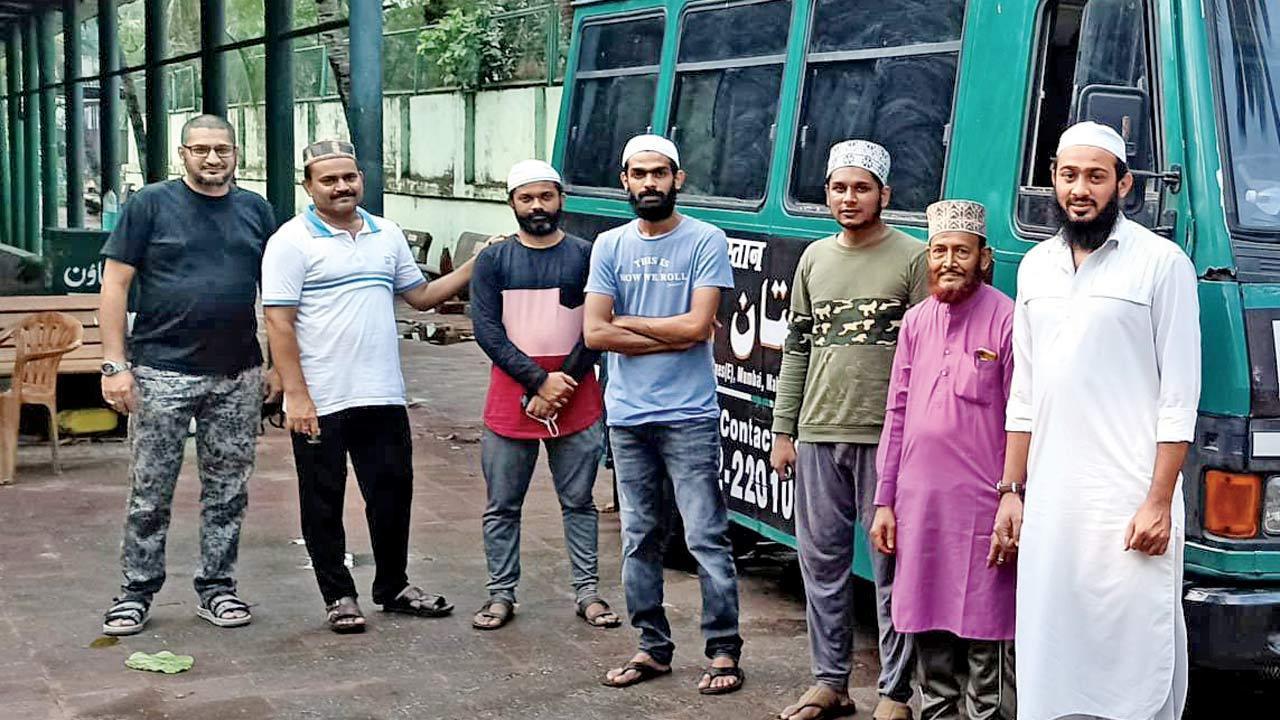Those managing smaller cemeteries say they won’t be able to reuse graves of COVID deceased for 4-5 years, which in the normal case is about 18 months.

Trustees of Deonar Sunni Muslim Qabristan at Govandi say the cemetery is anyway too small for the 10-15 lakh Muslims in the area
The pandemic and a rise in population have led to space shortage at cemeteries for Muslims across the city. The challenge for the community is that the areas where COVID bodies are buried cannot be reused for the next 4-5 years. A few smaller Qabristans have stopped taking COVID bodies and are asking the kin of the victims of the virus to approach the Bada Qabristan at Kalbadevi.
Oshiwara Qabristan is among the cemeteries facing space crunch
Insisting that there is no shortage of space as yet, Nawab Malik, the state’s minority development minister, said, “We have directed people to dig 20 ft instead of 10 ft so the one grave can be used for burying two bodies.”
The management of Bada Qabrastan, the largest cemetery for Muslims in Mumbai, says they have divided the place into seven parts of which three are being used for general bodies and the rest has been reserved for COVID bodies. “So far more than a thousand COVID bodies have been buried here including 125 in the last one month. We don’t have any shortage of space as of now,” said Shoaib Khatib, chairman of Juma Masjid and Bombay Trust that manages the cemetery in south Mumbai.
Khatib said a grave can be reused in regular cases, but it’s different for pandemic victims. “For COVID bodies, we won’t be able to reuse the space at least for five years which is a major concern.” At Govandi, which has one of the highest Muslim populations in Mumbai, the problem is acute. “We have 10-15 lakh Muslims here, still we are using the same space which was allotted when the community’s population here was 50,000. Another Qabristan recently allotted at Rafiq Nagar is also facing the same issue,” said Abdul Rehman Karimullah Shah, president of Deonar Sunni Muslim Qabristan. This cemetery initially accepted COVID bodies and has given space to more than 200 such victims in the past year. “Now, the situation is getting out of hands. We have urged the civic body to give us more open space available inside the Qabristan,” Shah added.
Senior journalist and social activist Iqbal Mamdani who has been helping burial and cremations said it’s time the government brought out a policy on burial sites. “Muslim leaders also must do something to ensure that at least people get enough space to burry their departed loved ones. There are many Qabristans across Mumbai but they are stuck in legalities. Some are awaiting funds from the government,” he said.
Mahim Sunni Muslim Qabristan is taking bodies only from a 3-km radius that too with hospital and police permission. “We are not refusing anyone. We are helping people with space in other Qabristans,” said Suhail Khandwani, chairman of the cemetery.
“We have been following the government and WHO guidelines for burial, but there are no clear norms on placing two bodies in one grave. I have written to the government with some suggestions but still to get a response,” Khandwani added.
The trust that manages the 5-acre Versova Muslim Qabristan says it can’t use the entire area for COVID bodies because of concerns of space reuse. “We are doing everything to accommodate all COVID bodies as per government rules,” said trustee Siaj Haidade. The situation is the same at Bandra East Naupada Qabristan. “Initially we were taking COVID bodies, but after one Muslim person was cremated in Malad last year, there was panic among Muslims. We have now stopped taking COVID for lack of space. However, we ensure burial wherever space is available,” said Bahlool Qureshi, trustee.
 Subscribe today by clicking the link and stay updated with the latest news!" Click here!
Subscribe today by clicking the link and stay updated with the latest news!" Click here!









